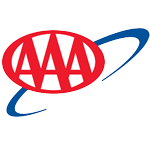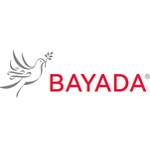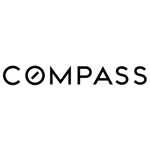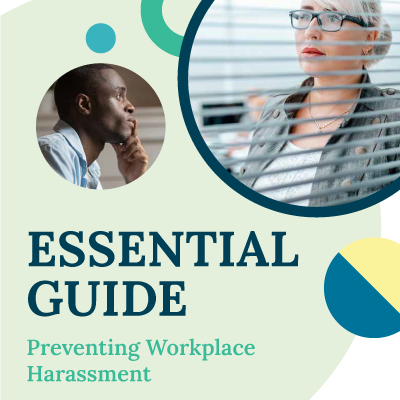WASHINGTON VIOLENCE | SEXUAL HARASSMENT TRAINING
Washington State Harassment Training
Syntrio’s employment law courses comply with the State of Washinton’s mandatory training requirements, from EEOC-compliance guidelines, landmark cases, and federal sentencing guidelines to applicable federal and state regulations.
Preview the U.S. Workplace Harassment and Discrimination Training Course
6,500+ Organizations Trust Syntrio – You Can Too!













































State of Washington Harassment Training
In 2019, Washington State enacted a sexual harassment law that requires employers in many industries to conduct training aimed at combatting harassment in the workplace. The law applies to employers in the retail, hotel, motel, security, and property services contractor industries that employ at least one person and focuses not only on reducing incidents of sexual harassment and the prevention of a hostile work environment but also sexual violence in the workplace. In addition to the need for sexual harassment training and compliance with federal harassment laws, Washington employers who are subject to the sexual harassment training law (known as SB 5258) must also comply with a strict set of guidelines under Washington State sexual harassment law. SB 5258 makes Washington one of the strictest states in the country for employee harassment training and human rights compliance.
In order to fully understand workplace harassment law in Washington, and fully comply with Washington sexual harassment training requirements it is important to pay attention not only to guidance on sexual harassment training set forth by the Washington Human Rights Commission but also to understand the broad scope of federal anti-discrimination law and its impact on Washington sexual harassment law and the need for anti-harassment training for employees.
Syntrio’s Washington U.S. Workplace Harassment and Discrimination Training
- Experienced: Developing workplace harassment training since 2002.
- Compliant: Complies with all relevant Washington regulatory requirements course timer ensures learners meet the minimum training time
- Engaging: Engages learners with short, live-action stories and practical exercises.
- Comprehensive: Addresses all required topics plus contemporary issues – workplace relationships, bystander intervention, diversity, equity, and inclusion.
- Flexibility: Versions for managers (2 hrs) and non-managers (1 hr); other versions that incorporate California with additional state training for easier deployment for multi-state businesses.
- Industries: Six industry verticals, including office/general, healthcare, industrial, hospitality, retail, and higher education.
Federal Harassment Law
To fully understand workplace sexual harassment training requirements by state, it is first necessary to have knowledge of the Federal anti-discrimination laws that prohibit employment discrimination, sexual harassment in the workplace, and other forms of workplace harassment. The most notable federal employment law covering discrimination and harassment in the workplace is Title VII of the Civil Right Act of 1964, which covers employers who employ or have employed, 15 or more employees for each working day in 20 or more calendar weeks in the current or preceding calendar year. In addition to prohibiting employment discrimination, courts have held that Title VII prohibits harassment in the workplace, which in recent years has become a key focus of attention on federal anti-discrimination laws and other related employment laws (including an increased focus on mandatory anti-harassment training).
Under the federal employment law scheme, harassment in the workplace is a form of discrimination that occurs when unwelcome conduct (such as verbal sexual harassment or physical sexual harassment) that is based on race, color, religion, sex (including sexual orientation, gender identity or pregnancy), national origin, age (over 40), disability occurs. Harassment in the workplace becomes illegal where: a) enduring the offensive conduct becomes a condition of continued employment, or b) the conduct is severe or pervasive enough to create a hostile or intimidating work environment that a reasonable person would consider hostile or abusive.
As important as learning what workplace harassment is, it is also important to understand that workplace harassment (including sexual harassment at work) under federal employment law does not include petty slights, annoyances, and isolated incidents. Unless extremely serious, such trial verbal sexual comments or other offensive behavior may not rise to the level of illegal harassment in the workplace.
Washington State of Harassment Laws
In addition to the illegality of employment discrimination and workplace harassment under the federal employment laws, sexual harassment is illegal under the Washington State anti-discrimination and Washington sexual harassment law, known together as the Washington Law Against Discrimination. The Washington anti-discrimination law is an employment law that also prohibits workplace harassment in Washington and is the law from which the new law requiring some employers to conduct Washington State anti-harassment training is derived, as well as the chapter of Washington employment law where the new workplace harassment Washington state training law is contained.
Importantly, sexual harassment in the workplace laws in Washington differs from federal anti-discrimination laws. In addition to additional protected classes such as marital status and parental/family status, Washington State employment law specifically states in the Washington State harassment law definitions section (RCW 49.95.010(10)) that there is no need for “inappropriate sexual behavior” to be “severe and or pervasive” to rise to the level of unlawful workplace sexual harassment. As such, it is critical that employers pay specific attention to Washington State sexual harassment law and Washington’s employment laws to distinguish between federal employment law and federal anti-discrimination law in making choices to fulfill Washington State sexual harassment training requirements.
Categories of Workplace Harassment
Under both federal and Washington workplace harassment laws, there are two categories of workplace harassment. They include:
“Hostile Work Environment harassment,” which refers to unwelcome comments or conduct based on sex that is either severe or pervasive such that they unreasonably interfere with an employee’s work performance or create an intimidating, hostile, or offensive work environment that alters the conditions of employment; and
“Quid Pro Quo sexual harassment” occurs when a job or promotion is explicitly or implicitly conditioned on an applicant or employee’s submission to sexual advances or other conduct based on sex.
No matter the type of sexual harassment, workplace sexual harassment is a significant issue in Washington State, and protections extend to applicants, employees, unpaid interns, professional relationships, and independent contractors. Likewise, mandatory training requirements for Washington anti-harassment training apply to some Washington State employers.

EMPLOYMENT LAW: HARASSMENT AND DISCRIMINATION COURSE
COMPENSATION AND BENEFITS
Meal & Rest Break Training
Understanding the Family Medical Leave Act (FMLA)
Wage & Hour Basics
CORRECTIVE ACTION
Avoiding Wrongful Termination
Employee Discipline
DISCRIMINATION
Employment Discrimination: Maintaining a Fair Workplace
Employment Discrimination: Sex
Employment Discrimination: Race, Color, and National Origin
Employment Discrimination: Religion
Employment Discrimination: Age
Employment Discrimination: Disability
Employment Discrimination: Sexual Orientation and Gender Identity
Creating a Bully-Free Workplace
DISCRIMINATION ETHICAL SNAPSHOTS
Festival Time
The Job Interview
Up or Out
Unpleasant News
An Open Position
HARASSMENT
U.S. Workplace Harassment and Discrimination
Bystander Intervention and Awareness and Sexual Harassment
Bystander Awareness and Intervention for Chicago
Preventing and Addressing Sexual Harassment
Preventing Sexual Harassment
Preventing Workplace Harassment
Workplace Harassment and Bullying: Managing Threats to a Respectful Work Culture
California Preventing Workplace Harassment
Connecticut Sexual Harassment Training for Employees
Delaware Preventing Sexual Harassment
Illinois Preventing Sexual Workplace Harassment
Maine Preventing Sexual Harassment
New York Preventing Sexual Harassment
Campus Aware: Sexual Violence Prevention
Harassment: Ensuring a Respectful Workplace
Preventing Unlawful Harassment for Colleges and Universities
Preventing Unlawful Workplace Harassment for Federal Agencies
Multi-Jurisdiction Preventing Workplace Harassment
Canada Harassment and Violence at Work
U.S. Workplace Harassment - Chicago
SPEAK UP ETHICAL SNAP SHOTS
Speak Up - Feeling Uncomfortable A/B
Speak Up - Harassment A/B
Speak Up - Health and Safety
Speak Up - Offensive Remark A/B
Speak Up - Something Missing
HARASSMENT ETHICAL SNAPSHOTS
The Viral Email
Jack and Dani Went Up a Hill
Third-Party Harassment
Making a Complaint
Making a Complaint 2
The Panda
Talking Sports
Unexpected Consequences
An Open Position
Workplace Disrespect?
A Very Important Client
A Very Important Client (B)
A Very Important Client (C)
Social Tony
Too Close for Comfort (A)
Too Close for Comfort (B)
Bullying
Workplace Harassment
Sexual Harassment
INVESTIGATIONS
RECRUITMENT
Legal Aspects of Interviewing and Hiring
RETALIATION ETHICAL SNAPSHOTS
Retaliation
Rocking the Boat
SUBSTANCE ABUSE
Managing Substance Abuse in the Workplace
Workplace violence is any act or threat of physical violence, harassment, intimidation, or other threatening behavior that occurs at the work site. It can be perpetrated by anyone, including employees, customers, clients, visitors, or even former employees.
The State of Washington has a number of laws and regulations in place to protect workers from workplace violence. These laws include:
- The Washington Industrial Safety and Health Act (WISHA) requires employers to provide a safe and healthy workplace for their employees. This includes taking steps to prevent workplace violence.
- The Washington Human Rights Act prohibits discrimination and harassment in the workplace, including on the basis of race, color, religion, sex, national origin, age, disability, or sexual orientation. This includes workplace violence that is motivated by any of these protected characteristics.
- The Washington Workplace Violence Prevention Act requires employers to develop and implement a workplace violence prevention plan for high-risk workplaces. High-risk workplaces include those that:
- Provide health care services
- Provide security services
- Handle cash or valuables
Washington State Harassment Training Requirements
Since 2019, under the Washington anti-discrimination law, some Washington employers have been required to provide mandatory anti-harassment training on the prevention of sexual harassment and sexual harassment and discrimination in the workplace. The Washington sexual harassment training requirements have been the subject of much discussion in recent years, and obligations for providing Washington sexual harassment training, discrimination, and harassment in the workplace training, and bullying and harassment training are still vague as to their applicability and level of contact with an employee in the covered industries.
Under Washington State employment law, all hotels, motels, retail entities, security guard entities, and property services contractors (those employing persons who labor for another person to provide janitorial services, with some exceptions) with one or more employees must provide sexual harassment in the workplace and sexual violence in the workplace training. Although the Washington State harassment training in the workplace law does not specify a re-training requirement for private employers, Washington State government employees must conduct additional workplace harassment training and sexual violence in the workplace training every 5 years.
The Washington State Human Rights Commission oversees and enforces workplace harassment training compliance. The Human Rights Commission in Washington State has stated that “all employees” in covered industries must receive training. The Washington State Human Rights Commission has defined “employee” under the workplace harassment training law as “an individual employed as a janitor, security guard, hotel or motel housekeeper or room service attendant who spends the majority of his or her time working without another coworker present.” Importantly, security guards are covered by the sexual harassment training and workplace violence training law regardless of whether they are working for a security agency or a single employer. Lastly, all managers and supervisors in covered industries must receive training aimed at reducing the number of hostile environment harassment, and sexual violence in the workplace and training on all forms of sexual harassment in the workplace.
The Washington State harassment in the workplace training law is silent as to what (if any) records must be retained by the employer, although Washington employers are encouraged under Washington employment law to keep the name of the training provider, a list of attendees, and the type of training, in case of an audit by the Washington State Human Rights Commission or legal action. Lastly, the Washington State Human Rights Commission has not set a minimum time duration for Washington anti-harassment training.
The Washington sexual harassment training law requires mandatory training to contain the following categories of information:
- How to prevent sexual assault and sexual harassment in the workplace;
- How to prevent discrimination in the workplace in Washington;
- Protections for employees who report violations of a Washington state or federal sexual harassment law, sexual violence rule, or Washington state sexual harassment or employment discrimination regulation.
In addition to following all Washington state sexual harassment training content requirements, Washington employers who are subject to the Washington anti-harassment training law must also provide employees with the following information in writing or via email:
- Contact information for the United States Equal Employment Opportunity Commission
- Contact information for the Washington State Human Rights Commission
- Contact information for local Washington State advocacy groups on the prevention of workplace sexual harassment and workplace sexual violence.
Additional Requirements Under the Washington State Workplace Harassment Prevention Law
Covered employers must also develop and distribute a policy against sexual harassment to all employees and must also distribute a panic button to all employees. A panic button is an emergency contact device that the employee carries, which can summon immediate assistance from another employee, guard, or employer representative in the event an incident of workplace sexual harassment or workplace sexual violence occurs, or the employee feels in danger of such an incident of workplace sexual harassment occurring.
STATE-MANDATED HARASSMENT TRAINING REQUIREMENTS
Several states have enacted mandatory training laws that require employers to provide sexual harassment training to their managers and employees.
Click on each state to learn more about Syntrio’s sexual harassment training products dedicated to exceeding compliance with mandatory training laws in each state. You will also learn about the requirements in that particular jurisdiction.
Preview the U.S. Workplace Harassment and Discrimination Training Course
Why Syntrio’s Training is your best Source of Compliance with Sexual Harassment Training Laws in Washington State
Syntrio has been the leader in workplace harassment training in the United States for over 20 years.
The first harassment training laws were enacted in the early 1990s, around the time Syntrio began developing content intended to assist employers in educating their workforces on employment law, workplace harassment, and employment discrimination. Following California’s harassment training mandate in the mid-2000, there was an explosion of activity in this area as organizations scrambled to find “check the box” compliance training (mostly to bolster defense in the event litigation commenced) or no training. Since its inception in the anti-discrimination and workplace harassment training market over 20 years ago, Syntrio has been aware that it needs to be different in order to help employers not only comply with sexual harassment in the workplace laws in all states (including Washington State) but also to help employers empower their workforce to speak up and make an actual difference in workplace culture.
Syntrio Continues to Innovate
As the 2010s closed, significant legislation and legislative recommendations left nearly half of the United States under either a mandate or official recommendation that some or all employees receive sexual harassment training. Although this increase was expected to continue, the pandemic slowed legislative development in this area. Nevertheless, Syntrio continued forging a new method of helping employers comply with the various workplace sexual harassment training requirements that were increasing in number and uses its depth of knowledge and expertise in the area to set itself apart from the competition by providing depth and breadth of employment law training that is cohesive as a component of an overall training strategy aimed at cultural improvement for the benefit of the employee.
The Syntrio Approach to Washington State Harassment in the Workplace Training is Different.
While the drive to provide workplace harassment training has not changed, expert views on the type and focus of training have. Many of our competitors continue to provide “check the box” Washington sexual harassment training that was provided before the #MeToo era and aimed at combating the negative effects of an incident of harassment in the workplace. This type of workplace harassment training focused on illegal sexual harassment and the ways companies could avoid liability rather than actual incident prevention and improvement in workplace culture. Syntrio knows that legalistic, compliance-focused training does not resonate with employees and has researched what does work.
The solutions that help to improve workplace culture and help reduce the number of incidents of workplace harassment involve a full-scale program of civility and respect training. It is, essential to provide training that complies with Washington’s sexual harassment law, but it is also necessary to let your workforce know that you care about their well-being. Therefore, a speak up and listen up a program aimed at empowering your workforce to report incidents is a critical aspect of any Washington State sexual harassment training program. Also, employers must provide training that teaches employees to respect one another and demonstrate the respect the organization has for its workforce. In addition to understanding what illegal sexual harassment is, employees must understand one another’s sensitivities and the organization’s understanding that everyone has individual needs.


